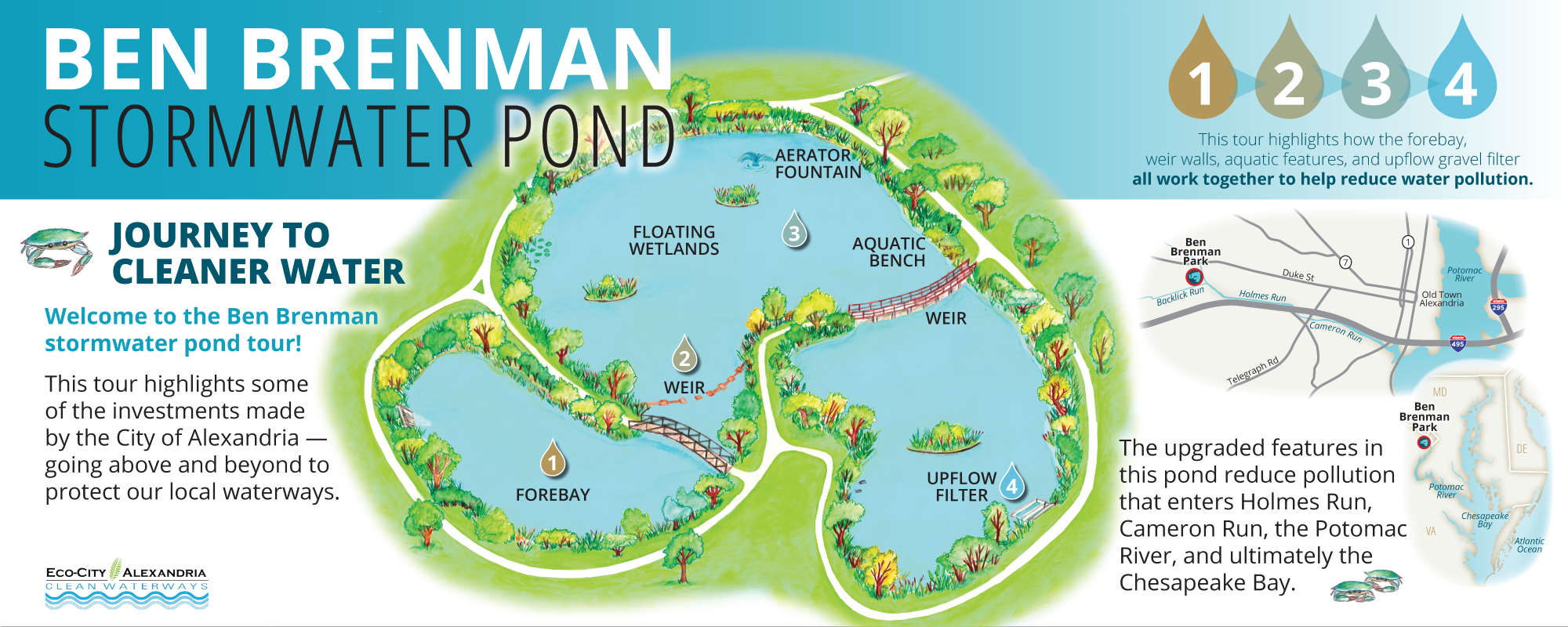
Ben Brenman Pond Stormwater Management Retrofit Project
Ben Brenman Pond, also called Cameron Station Pond, is in Ben Brenman Park. The Ben Brenman Pond Stormwater Management Retrofit Project acts as a stormwater BMP to help filter pollutants, such as nitrogen, phosphorous, and sediment out of the stormwater that enters the pond. The project was substantially completed in June 2020.
Page updated on April 2, 2025 at 4:11 PM
XWARNING: You have chosen to translate this page using an automated translation system.
This translation has not been reviewed by the City of Alexandria and may contain errors.
Journey to Cleaner Water

Welcome to the Ben Brenman stormwater pond tour! This tour highlights some of the investments made by the City of Alexandria, which is going above and beyond to protect our local waterways. The upgraded features in this pond reduce pollution that enters Holmes Run, Cameron Run, the Potomac River, and ultimately the Chesapeake Bay. The pond treats stormwater runoff from more than 290 acres of land!
Click on the cards below to learn more about how the forebay, weir walls, aquatic features, and upflow gravel filter in Ben Brenman pond all work together to help reduce water pollution.
Outreach & Education
- Test your Ben Brenman Pond knowledge with this fun activity sheet! Finish the puzzles and learn more about water quality and Ben Brenman Pond
- Get stuck? Find the answers using this activity sheet answer key.
- Visit the SEAS YouTube Channel to watch City Stormwater Management staff provide a closer look at the Ben Brenman Pond Retrofit Project. The City's presentation begins at 2:44.
Reminders
- Avoid using pesticides and fertilizers that could harm native plants.
- Call 311 (the City’s non-emergency hotline) if you see something that isn’t right.
- Dispose of trash properly to prevent litter from entering our waterbodies.
- Sweep driveway instead of hosing to prevent pollutant runoff.
- Avoid using pesticides, fertilizers, and insecticides. These chemicals are harmful to our water bodies.
- Don’t feed or interact with the wildlife.
- No fishing. These aquatic species are essential for the pond’s ecosystem and help regulate its waters.
- No swimming in the pond. Swimming could damage one of the pond’s features.
- Avoid trampling sensitive plants. Each plant plays an important role, either by helping absorb pollutants or preventing erosion.
- Pick up after your pets and dispose of waste properly. Pet waste can hold bacteria or pathogens, which can contaminate water.
- Get involved in community efforts.



